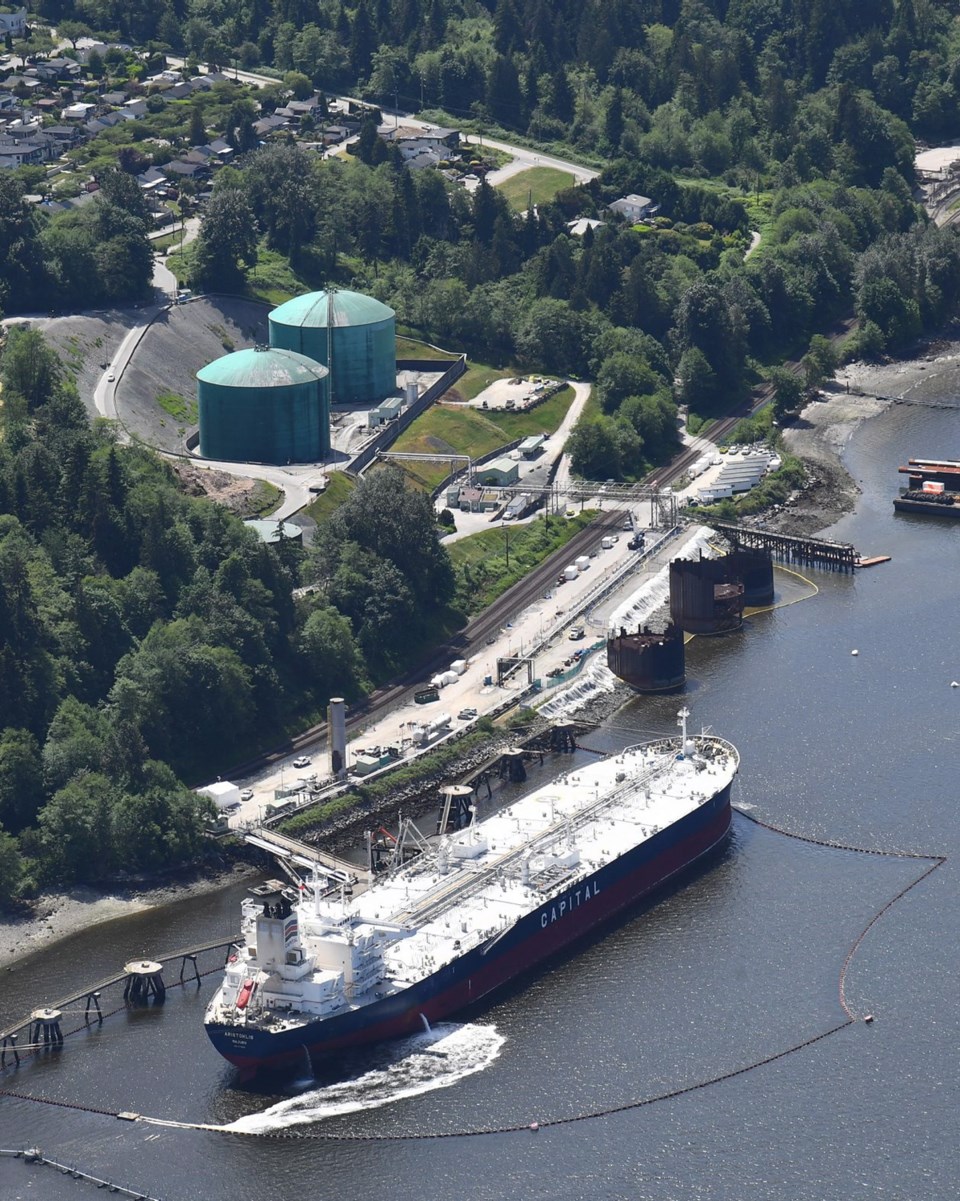VANCOUVER — Talks are underway with unnamed major Canadian banks on a potential financing and equity model that could see B.C. First Nations take an ownership stake in the controversial $6.8-billion Trans Mountain pipeline expansion.
Whispering Pines First Nation chief Michael LeBourdais said two major Canadian banks approached First Nations in March or April of this year. That was about the time Texas-based project owner Kinder Morgan issued an ultimatum that unless it was certain it could build the project through British Columbia, it was walking away.
Since then, the federal government has stepped in with an agreement to purchase the existing Trans Mountain pipeline and the expansion project for $4.5 billion, a transaction expected to close in the fall.
LeBourdais would not name the banks and would not say what other First Nations were involved in discussions about the idea, saying those First Nations don’t want to go public yet.
All of Canada’s six big banks — along with a dozen international financial institutions — were involved in financing $5.5 billion in credit facilities to Kinder Morgan for the construction of the Trans Mountain expansion.
In response to questions from Postmedia News, the Royal Bank, Toronto-Dominion and the National Bank of Canada declined to comment on whether they are involved in ownership talks with First Nations. The Bank of Montreal, Scotiabank and CIBC did not respond to requests for comment.
The Trans Mountain project is viewed as critical by the federal and Alberta governments and oil producers to diversifying Canada’s oil export markets away from the United States.
Tripling pipeline capacity with the twinning project will increase ocean-going shipment capacity from an expanded Burnaby terminus.
Some First Nations — including the Tsleil-Waututh, Sto:lo and Stk’emlupsemc te Secwepemc — are adamantly opposed to the project. A critical federal court challenge led by those First Nations is pending.
LeBourdais said he has had discussions with as many as 27 First Nations along the pipeline route, the majority of them in B.C., including in the Fraser Valley, along the Coquihalla Highway, in the North Thompson region and into Edmonton.
They are among 33 First Nations in B.C. and another 10 in Alberta that have already signed benefit agreements for the project valued at $400 million.
LeBourdais said the point of buying a stake in the pipeline is to get First Nation support by taking control of the pipeline and taking responsibility for environmental oversight.
“The best way for those who are worried about the environment is to have control over the thing you fear,” LeBourdais said.



